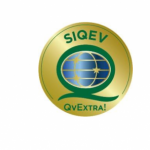The EVOO impact on cholesterol is a key topic in cardiovascular health. This superfood, characteristic of the Mediterranean diet, is rich in polyphenols, oleic acid, and antioxidants, making it a great ally in regulating cholesterol levels and blood pressure. Let’s explore how its consumption benefits people at different life stages.
Childhood and Adolescence: EVOO’s Impact on Cholesterol and Hypertension
The EVOO impact on cholesterol is crucial in preventing high cholesterol and hypertension in children and teenagers. Studies have shown that regular consumption improves lipid profiles, reducing LDL (bad) cholesterol and increasing HDL (good) cholesterol. Additionally, it helps improve triglycerides and other cardiovascular markers. Introducing EVOO into children’s diets promotes healthy habits with long-term positive effects.
Adulthood: EVOO Impact on Cholesterol and Cardiovascular Health
In adulthood, the risk of hypertension and high cholesterol increases. The EVOO impact on cholesterol is significant, as incorporating it into the daily diet helps reduce blood pressure and improve lipid profiles. If consumed at a superior quality, such as that certified by the SIQEV seal from QvExtra!, the benefits are even greater due to its high polyphenol concentration. Furthermore, consuming EVOO during pregnancy and breastfeeding may positively influence the baby’s cardiovascular health, transferring these benefits through the mother.
Senior Age: EVOO for Cardiovascular Protection and Cholesterol Control
In older age, EVOO becomes a powerful ally against LDL cholesterol oxidation and chronic inflammation, factors that increase the risk of heart disease and strokes. Regular consumption improves arterial function, promoting better blood circulation. Studies in long-living populations have linked greater longevity with the consumption of EVOO and the Mediterranean diet.
Extra virgin olive oil, especially that certified by QvExtra! with the SIQEV seal, is essential for cardiovascular health at all life stages. From childhood to old age, its consumption helps reduce cholesterol, control hypertension, and prevent cardiovascular diseases. Choosing high-quality EVOO is an investment in long-term health and well-being.
Bibliography
Guasch-Ferré, M., Liu, G., Li, Y., Sampson, L., Manson, J. E., Salas-Salvadó, J., Martínez-González, M. A., Stampfer, M. J., Willett, W. C., Sun, Q., & Hu, F. B. (2020, 1 julio). Consumo de aceite de oliva y riesgo cardiovascular en adultos de Estados Unidos. JACC. Edición En Español.
La Española Aceites (2023). Aceite de oliva y longevidad: estudios en poblaciones centenarias. Recuperado de https://www.laespanolaaceites.com/salud/aceite-de-oliva-y-longevidad-estudios-en-poblaciones-centenarias/
Lenguas, J. A. C., Canales, M. J. C., Díaz, J. P., Aguar, A. F., Aísa, P. J. S., del Río Ligorit, A., … & Montero, I. J. F. (1997). Cambios en el perfil lipídico de individuos jóvenes tras la sustitución del aceite de girasol de su dieta por aceite de oliva. Revista Española de Cardiología, 50(12), 843-850.
López-Yerena, A., Grases-Pintó, B., Zhan-Dai, S., Pérez-Cano, F. J., Lamuela-Raventos, R. M., Rodríguez-Lagunas, M. J., & Vallverdú-Queralt, A. (2022). Nutrition during pregnancy and lactation: New evidence for the vertical transmission of extra virgin olive oil phenolic compounds in rats. Food Chemistry, 391, 133211.
Zamora-Zamora, F., Martínez-Galiano, J. M., Gaforio, J. J., & Delgado-Rodríguez, M. (2018). Effects of olive oil on blood pressure: A systematic review and meta-analysis. Grasas y Aceites, 69(4), e272-e272.







